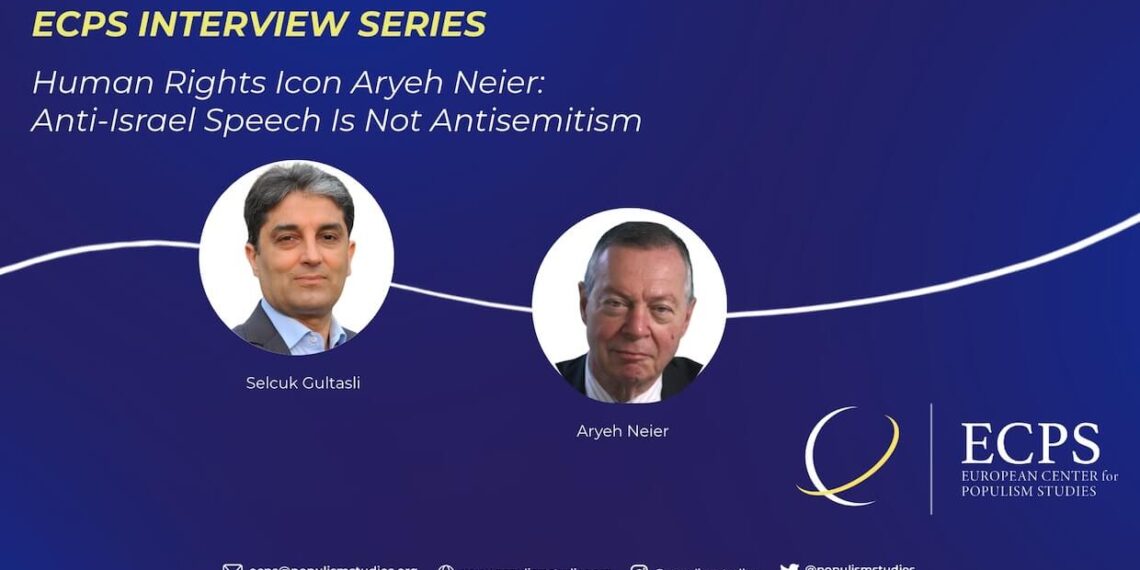In an exclusive interview with the ECPS, Aryeh Neier — founding Executive Director of Human Rights Watch and former President of the Open Society Foundations — delivers a powerful assessment of Gaza, free speech, and international accountability. Neier argues that criticism of Israeli policies must not be conflated with antisemitism, stressing that “even antisemitism constitutes protected speech.” He further asserts that “Israel is engaged in genocide,” citing systematic obstruction of humanitarian aid and disproportionate force in Gaza. While the ICC remains “the only viable path” for justice, he warns that political barriers persist. From US policy dynamics to global human rights challenges, Neier offers rare insights into one of today’s most divisive debates.
Interview by Selcuk Gultasli
Giving an interview to the European Center for Populism Studies (ECPS), iconic human rights defender Aryeh Neier — former Executive Director of the American Civil Liberties Union (ACLU), founding Executive Director of Human Rights Watch (HRW), and former President of the Open Society Foundations — reflects on Israel’s war in Gaza, free speech controversies, and the challenges of international accountability. With a career spanning more than six decades and seven honorary degrees, Neier brings unmatched authority to one of today’s most polarizing debates.
At the heart of the conversation lies his assertion that criticism of Israeli policies must not be conflated with antisemitism. “Differentiating antisemitism from anti-Israel speech is something that the Trump administration has failed to do,” Neier argues, highlighting how US political discourse has blurred the lines between prejudice and legitimate dissent. He warns against undermining free expression on American campuses: “Even antisemitism constitutes protected speech,” he insists, while adding that universities must balance academic freedoms with preventing disruption to institutional activities.
Turning to Gaza, Neier presents a grave legal assessment: “Israel is engaged in genocide,” he says, grounding his conclusion in the 1948 Genocide Convention. He points to two central factors: Israel’s sustained obstruction of humanitarian aid and the use of disproportionate force. “Starvation, as a method of warfare, is forbidden under the First Protocol of the Geneva Conventions,” he stresses, adding that the denial of food, water, and medical supplies, combined with the use of 900-kilogram bombs in densely populated areas, “seems to me to amount to the crime of genocide.”
Aryeh Neier also emphasizes the limitations of international mechanisms. While the International Criminal Court (ICC) remains the most viable forum for prosecutions, enforcement will require political shifts. Drawing parallels to the former Yugoslavia, he notes, “Slobodan Milosevic never imagined he would face trial, yet years later he was sent to The Hague.”
On US policy, Neier identifies Evangelical Christian groups, not AIPAC, as a dominant influence shaping Washington’s stance toward Israel, complicating responses to international legal rulings. He also warns of growing generational divides within US politics, with younger voters increasingly critical of Israeli policies — a factor he believes may eventually reshape policy debates.
This interview offers a profound exploration of the intersection between human rights, international law, free speech, and accountability. From Gaza to US campuses, Neier challenges political distortions and underscores the urgency of protecting both humanitarian principles and civil liberties in an age of polarization.


